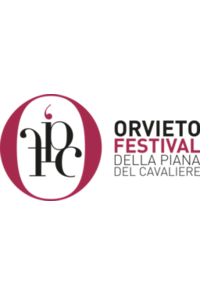Program notes
Jean Sibelius
Impromptu op. 5
Jean Sibelius (8 December 1865 – 20 September 1957) was a Finnish violinist and composer. Considered the greatest representative of the Finnish musical renovation, he fused elements of German Romanticism and the expressive forms of Finnish folk music in his composing style. Along with the folk spirit, Sibelius similarly absorbed the essence of Scandinavian legends, especially the evocation of the natural environment that forms their evocative background.
His arrangement for the string orchestra of Impromptus No. 5 and No. 6 represents one of his works that is less well-known to the public in general. Based on a delicate and graceful style that to a large extent distances it from the resplendent liveliness of the original 1893 composition for piano from which it is taken, it is composed of two separate pieces, merged into a single design: the fifth Impromptu opens and concludes the piece while the sixth provides a more subtle and joyful contrast to the work’s core in ternary form. The edition for string orchestra, however, almost completely reverses its character: the composer transforms the introduction from a celestial piano étude to a subdued chorale for strings within which a constant syncopated cello pedal provides impulse and movement to the dreamy atmosphere realised by the orchestral ensemble. In contrast, the sixth Impromptu for piano, with its sorrowful progression, changes into a more delicate dance, to which a strength is subtended by the tight staccato accompaniment of the second violins and the “pizzicato” bass line, while the melody of the first violins and violas rises in broad legato phrases.
Alissa Firsova
Le soleil de Conques
Alissa Firsova, a child of art, is a talented young pianist, composer and conductor of Russian-British origin. In 2001, she won first prize in the BBC Proms/Guardian Young Composer Competition with the piece Les Pavots. She graduated from the Purcell School in piano and composition and the Royal Academy of Music in 2009 where she also pursued orchestral conducting studies with Paul Brough, and is composer-in-residence of the Verbier Festival. Le Soleil de Conques, a lyrical piece in one movement, is inspired by the solar cycle from sunrise to sunset. The solo cellos, like two voices in a duet, dialogue, exploring the different textures of the instrument in a succession of moments of sophisticated virtuosity and episodes of great lyrical fluidity. The texture is developed through the refined use of the string orchestra that favours an evocative illustration of the sun at its zenith.
Felix Mendelssohn- Bartholdy
Symphony No. 10 in B minor for Strings, MWV N 10
The Symphony in B minor for strings is one of twelve symphonies for string orchestra that Felix Mendelssohn composed between 1821 and 1823 as an almost teenager. Intended for private performance at his wealthy Berlin residence, the work stands out for its formal composure and melodic fluidity, hallmarks of the musician’s inventive flair from his earliest days as a composer. Structurally adhering to the canons of classical sobriety, it boasts a transparent and orderly writing, attentive to the right sound relationships. Of the composition, only one movement has been preserved, in which the dreamy atmosphere of the slow introduction represented by the Adagio, with its almost an inspiration of Haydn’s style, is suddenly interrupted by the dramatic impetus that follows, in the Allegro, where – due to the decisive rhythmic style and casual creativity – Mendelssohn is perfectly recognisable.
Michele Sarti
Of night and light and the half-light
(world premiere)
The new piece commissioned by the 2022 edition of the Festival della Piana del Cavaliere is by Michele Sarti. Born in 1991, he is a young emerging talent on the Italian composition scene.
Peter Warlock
Capriol Suite
Philip Arnold Heseltine, known by the pseudonym Peter Warlock, was a British composer and critic of music. His unconventional and often scandalous modus vivendi, and distinctive and original compositional style, contributed to building a tendentially controversial character. His critical writings also made a pioneering contribution to a new interpretation of early music. In his later years, due to a loss of creative inspiration, Heseltine suffered a depression that led to his death from gas poisoning in 1830.
The Capriol Suite, one of his most popular works, is a series of six dances composed in October 1926. Originally composed for four-hand piano, it was transcribed by the composer himself for both strings and large orchestra. It is dedicated to the Brittany composer Paul Ladmirault Warlock and is inspired by pieces from Thoinot Arbeau’s Orchésographie, a guidebook of Renaissance dances. In an attempt to capture the present, the composer draws on the ancient style without, however, renouncing the treatment of this material by using extremely modern insights, highlighting how the present develops on layers of what is now the past.
Giovannella Berardengo
Anssi Karttunen
Appassionato sostenitore della musica contemporanea, il violoncellista e compositore ha in repertorio pressoché l’intera letteratura per il suo strumento; ha scoperto molti capolavori dimenticati e trascritto numerosi brani solistici o per ensemble. La sua collaborazione con i compositori lo ha condotto a presentare oltre 190 opere in prima mondiale di autori quali M. Lindberg, K. Saariaho, P. Dusapin, L. Francesconi, Esa-Pekka Salonen, Jukka Tiensuu e Tan Dun. Di rilievo la ‘prima’ di Notes on Light di Kaija Saariaho composto espressamente per lui su commissione della Boston Symphony Orchestra. Fa parte dello Zebra Trio, dei gruppi Sons of Chipotle e Tres Coyotes (con il polistrumentista John Paul Jones Karttunen) e si esibisce con Magnus Lindberg e Nicolas Hodges.
Suona con le migliori orchestre del mondo (London Sinfonietta, Los Angeles Philharmonic, Philharmonia Orchestra), in recital e musica da camera nei principali festival europei quali Edimburgo, Salisburgo, Lockenhaus, Spoleto, Berlino, Venezia, Montpellier, Strasburgo, Helsinki.
I suoi CD spaziano da Bach e Beethoven a opere del XX secolo per violoncello solo. Per DG ha pubblicato il Concerto per violoncello di Henri Dutilleux (Grammophon Award 2013). Sue recenti registrazioni includono la musica da camera di Brahms, un recital solista e il Secondo Cello Concerto di Colin Matthews per NMC. Direttore artistico della Avanti Chamber Orchestra (1994-’98), della Biennale di Helsinki (1995) e del Suvisoitto-festival a Porvoo (Finlandia) dal 1994 al ‘97 e del festival Musica Nova Helsinki nel 2015. Dal 1999 al 2005 è stato inoltre il primo violoncello della London Sinfonietta.
Si esibisce anche in veste di direttore d’orchestra (Filarmonica delle Fiandre, Gaida Ensemble di Vilnius, NJO String Orchestra ecc). Sue trascrizioni includono pagine di Brahms e Schumann. Formatosi sotto la guida di Erkki Rautio, William Pleeth, Jacqueline du Pré e Tibor de Machula, insegna all’Ecole Normale de Musique di Parigi.
Suona un violoncello del cremonese Francesco Ruggeri (1670 circa).
Claudio Pasceri
Il Violoncellista meraviglioso Claudio Pasceri mi ha impressionato tanto per via della sua musicalità e della maestria sovrana sul suo strumento, nonché per la sua competenza nella musica di oggi.
Helmut Lachenmann
Tra i più apprezzati violoncellisti italiani della propria generazione, svolge un’intensa attività concertistica. Il repertorio solistico comprende concerti di Vivaldi fino a opere di Schnittke, in esecuzioni con orchestre come l’Orchestre de Chambre de Toulouse, la Camerata Royal Concertgebouw Amsterdam, Arpeggione Kammerorchester. Una sua esecuzione del concerto di Schumann è stata registrata dalla Bayerischer Rundfunk di Monaco di Baviera. In ambito cameristico collabora con illustri musicisti, tra cui Salvatore Accardo, Pavel Gililov, Ilya Grubert, Dora Schwarzberg, Bruno Giuranna, Rohan De Saram, Rocco Filippini, Gilles Apap. Dal 2012 è il violoncellista di NEXT – New Ensemble Xenia Turin, quartetto d’archi specializzato nel repertorio contemporaneo. Tiene regolarmente Masterclass e seminari per istituzioni europee come Musicalta a Rouffach, Università del Liceu di Barcellona, Leopold Mozart Universität di Augsburg. È stato docente di violoncello presso l’Accademia di Musica di Pinerolo. È direttore artistico del Festival di musica contemporanea EstOvest e condirettore di Asiagofestival, al fianco di Julius Berger.
Info
eventi@festivalpianadelcavaliere.it

